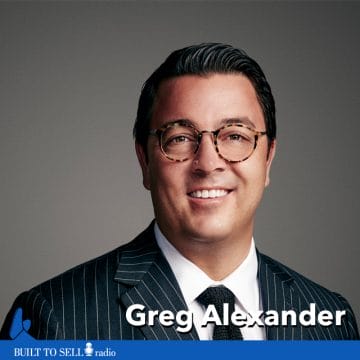About this episode
Please note: this episode includes language some listeners may find offensive.
At age 36, Greg Alexander decided to start Sales Benchmark Index (SBI), a sales consultancy. Over the next eleven years, Alexander built the business to 30 employees who collectively generated about $30 million in consulting fees per year.
Eleven years later, Alexander sold SBI for $162 million — equivalent to roughly 11 times EBITDA.
Alexander sold without signing on for an earn-out, an incredible achievement for a service business. This episode is jam-packed with insight, including:
- Alexander’s “80-million-dollar mistake” and how to avoid the same pitfall.
- How Alexander was able to generate $1 million of consulting fees per employee.
- How to productize your service.
- Why you need to decide whether you want to “be a king or get rich.”
- How to create a killer corporate culture when everyone works from home.
- How to handle the emotional impact of re-trading.
- Why Alexander thinks of an exit as a stepping stone rather than the finish line.
Alexander was able to leave SBI the day his deal closed because the business could run without him. Find out how well your company would perform in your absence by getting your Value Builder Score now.
Check out our article on The Biggest Mistake You Can Make When Turning A Service Into A Product.

About Our Guest
Greg Alexander is the founder of Collective 54, the national peer-to-peer network for owners of boutique professional services firms. In this capacity, Greg helps leaders grow, scale, and sell their firms at the right time, for the right price, and on the right terms. Prior to Collective 54, Greg started, scaled, and sold a consulting firm for 9 figures in 10 years. Greg is the author of the book titled “The Boutique: How to Start, Scale, and Sell a Professional Services Firm”, and is the co-host of the podcast of the same name, The Boutique, which can be found at www.collective54.com.
Connect with Greg:


